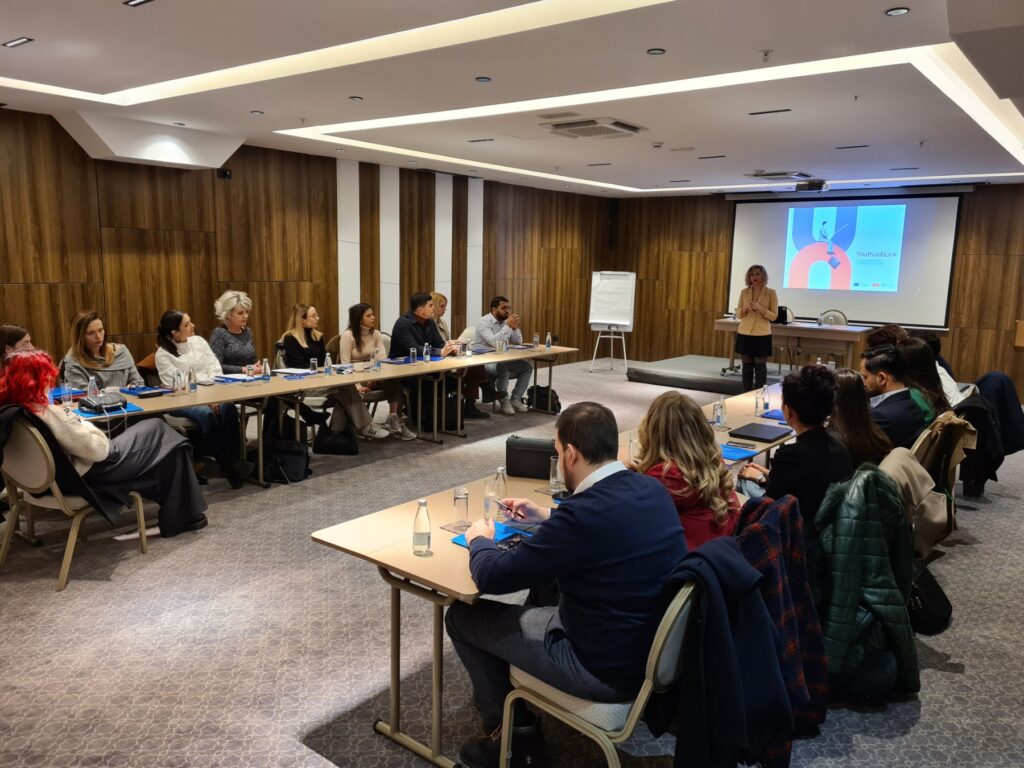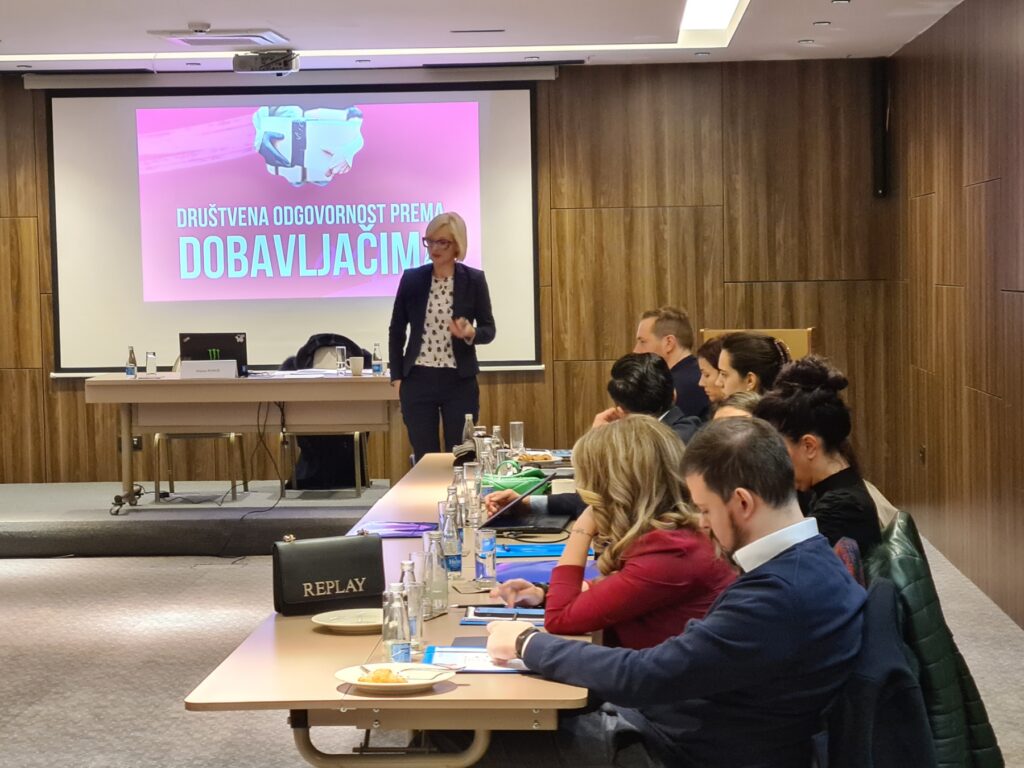Centre for Civic Education (CCE) organized today, on 23 January 2024, in Podgorica, a capacity building training for employers where ten young people will be employed, who have previously received training in communication skills, project cycle management and social entrepreneurship. This programme is part of the project YouthJobLink – linking youth and social enterprises, implemented by the CCE with the support of the Directorate for Finance and Contracting of EU Assistance Funds (CFCU) of the Ministry of Finance of the Government of Montenegro, aiming to enhance the competitiveness of youth in the labour market and improve their employability.
To analyze the capacities of employers, especially for the possibilities of mentoring young people, a special programme for employers was held with the participation of 20 employer representatives. Together with expert consultants, they analyzed their capacities and identified ways to improve competitiveness and sustainability with a focus on social entrepreneurship. In addition, they received certain knowledge and skills in the field of business in the public interest and work with vulnerable groups.
It is planned that by each of these employers, one young person will be employed, for a period of six months, during which the employers will provide mentoring, and the CCE will provide technical support.
“Developing the capacity of social enterprises and organizations with a social dimension of business is important because it contributes to sustainable economic growth and the reduction of social inequalities and poverty in the country. In this process young people can play a key role, because with their innovative ideas and access to modern technologies they can improve existing business models. At the same time, the social capital of the country is being strengthened, because young people more easily recognize problems in the community, but also look for adequate, socially and economically efficient solutions,” indicates Lidija Brnović, labor market consultant and one of the trainers.
“Socially responsible business is a company’s responsibility for the impact it has on society. It should not be a matter of choice, but a way of doing business overall – it is an inevitability if you want to live and work. Enterprises are made up of people, and the only thing enterprises need to do to be socially responsible is to behave the way managers and employees behave at home, in their relationships with their families and close people” emphasizes Dejana Ponoš, director of the company Arhimed and one of the trainers. “In our private life we take care of our environment, it is logical that we do the same in our business life, to be responsible, transparent, to respect other people’s opportunities and needs, to provide everyone with the right to work and participate in the labor market,” she underlines.
“Aim of social entrepreneurship, although it is still not legally recognized as such in our legislation, is that certain businesses develop through the development of various capacities, primarily human. In that part, employment of youth within such a enterprises enables them to receive education and develop of various skills, not only through the prism of business, but business based on principles that take account of people and their capacities and knowledge”, said Lepa Žunjić, executive director of social enterprise Kreativa Lab from Podgorica, and one of the training participants.
“It is important that non-governmental organizations take on the role of social enterprises because of their orientation towards social impact and solving problems in the community. Youth should be aware of this importance in order to support themselves, participate and contribute to this positive trend”, says Nardi Ahmetović, executive director of the Center for the Affirmation of the RE Population – CAREP from Nikšić, one of the participants of the training. “However, at the moment, youth are not sufficiently familiar with the concept and importance of social entrepreneurship, which indicates the need to strengthen their awareness and involve them in this socially responsible practice”, concludes Ahmetović.
Željka Ćetković, Active Citizenship Programme Coordinator


